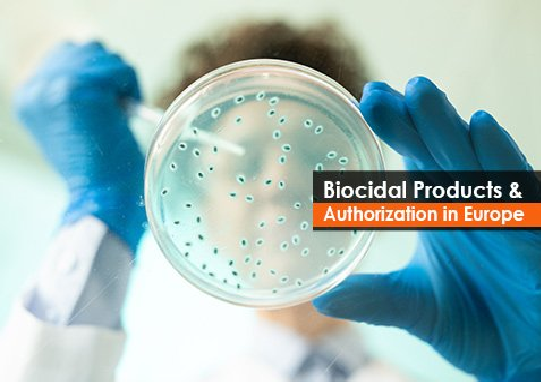Authorisation of biocidal products
A biocidal product/biocidal family must be authorised to be placed on the market. At what point the requirements for authorisation applies to a particular product depends on the specific active substances in the product. In general terms, the authorisation requirements of the EU Biocides Regulations (BPR) will apply to a product when:
- the active substance(s) within the product is approved and implementing Regulation is published in accordance with the EU BPR Article 9, and
- the implementing Regulation covers the product type appropriate for that product.
When a product contains more than one active substance the biocidal product/biocidal family cannot be authorised until all of the active substances are approved. In other words, authorisation is possible only when the last of the active substances in the biocidal product/biocidal family is approved.
If your biocidal product/biocidal family was made available on the market prior to the active substance(s) being approved, transitional provision will apply while you apply for authorisation or to allow you to phase out existing stocks if you are not applying for authorisation.
If your biocidal product/biocidal family was not on the market prior to the active substance(s) being approved, you must obtain authorisation before the biocidal product/biocidal family can be made available on the market.
If your biocidal product/biocidal family contains an active substance(s) that is a candidate for substitution a comparative assessment will be made under Article 23 of EU BPR and you may need to provide additional information as part of this assessment.
Companies wishing to place biocidal products on the market can apply for product authorisation at National or Union level.
- National authorisation and mutual recognition
- National authorisation and mutual recognition renewal
- Union Authorisation
- Simplified authorisation
- Same biocidal product authorisation
National authorisation
Companies planning to sell their products in one EU Member State must apply for product authorisation in that country. To do so, they submit an application for national authorisation through R4BP 3.
The Member State competent authority evaluates the application and makes a decision on the authorisation within 365 days.
Comparative assessment
Where an active substance is identified as a candidate for substitution, the Member State should carry out a comparative assessment to check whether other authorised biocidal products, non-chemical control or prevention methods that present a significantly lower overall risk for human health, animal health and the environment are available.
If there is already an authorised product, which is sufficiently effective, presents no other significant economic or practical disadvantages and does not affect the occurrence of resistance in the target organism, the new product will be restricted or prohibited.
Mutual recognition
If a company wishes to extend the national product authorisation to other markets, it can ask other Member States to recognise it. Companies can apply for mutual recognition either in sequence or in parallel.
To apply for mutual recognition in sequence, companies first need to get their product authorised in one Member State. After this, they can request other Member States to recognise this authorisation.
For mutual recognition in parallel, the company can submit an application for product authorisation in one Member State (called the reference Member State) and simultaneously ask other countries to recognise the authorisation as soon as it is granted.
In both cases, applications are submitted via R4BP 3. The mutual recognition process will take approximately five months from the validation of the application by the evaluating competent authority.
If the concerned Member Stetes do not agree to mutual recognition, the case will be referred to the coordination group, which has 60 days to seek agreement. The coordination group is a body formed by representatives of the Member States and the Commission.
If the coordination group cannot reach an agreement, the matter is referred to the Commission which may ask ECHA for an opinion on the scientific or technical aspects of the case.
Ekotox Centers are providing consultancy services and customers support in the area of EU chemicals legislation – REACH Registration, REACH Authorisation, REACH/CLP Screening, Persistent Organic Pollutants (POPs), Biocidal products (BPR), RoHS, WEEE, Safety Data Sheets, PCN and UFI services and more…